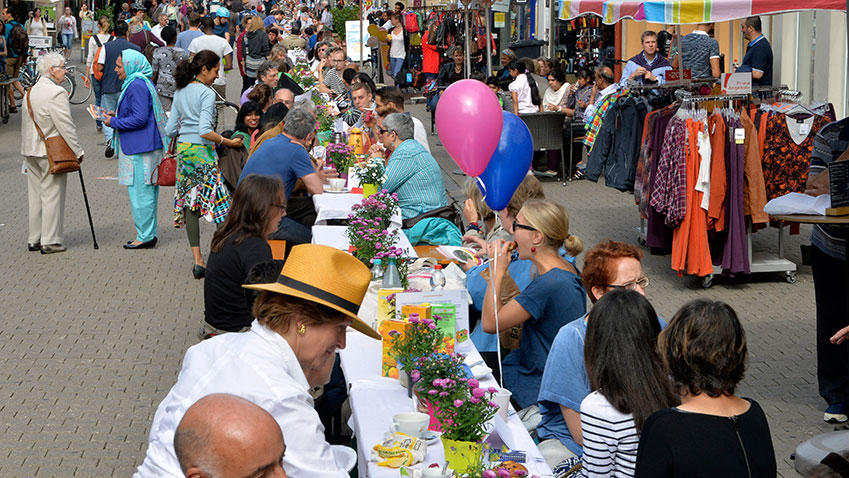On 28 July, the German city of Erlangen has joined the Intercultural Cities programme on Thursday. Erlangen is the 100th city to join the Council of Europe initiative –being only the second German city to become full member after Berlin-Neukölln. By joining the largest urban integration programme in Europe, the German city aims at strengthening its integration policies in a long-term, sustainable perspective.
In 2015 over 1.1 m refugees entered Germany. In Erlangen, a city of approx. 110.000 inhabitants, over 1500 refugees arrived in 2015, which adds up to around 2000 refugees currently living in the city. "Refugees make up around 2 per cent of our population. Already today we understand that many of them will stay in Erlangen. Accordingly, we need to plan policies today that help us to shape social cohesion and trust for a city of tomorrow. Therefore, we need for example socially mixed quarters, so our children can meet each other on the playgrounds. To be successful in our integration policies we need to provide sufficient language courses for all. And we need to open up cultural associations and sports clubs for all newcomers", explains Dr. Florian Janik, Mayor of Erlangen.
Interaction is a key principle of the Intercultural Cities initiative of the Council of Europe. The programme supports cities to successfully manage their diverse population. After accession of a city, the programme offers an evaluation of the local integration policies called Intercultural Index. It evaluates integration policies in areas such as education, language learning, leisure time activities or job market integration to see where the city already excels and where it can strive for improvement. Erlangen will finalise this evaluation process in October 2016. "To learn in detail in which areas we achieve and where we still can improve will help us to plan and implement the most effective and adequate integration policies and measurements", highlights Dr. Elisabeth Preuß, Deputy Mayor for integration. On the ground of the Intercultural Index, experts of the Council of Europe support cities in designing and implementing integration policies. Additionally, the programme serves as platform for the 100 cities across Europe to exchange about best practice. The project, however, does not only aim at refugees but rather views urban society as a whole, where every member plays a vital role. "This holistic approach is important as integration matters to all of us and is not a one-way street. Social cohesion must be planned today maybe more than ever including various stakeholders in a city", explains Dr. Preuß.
Already in 2011 Neukölln became member of the intercultural cities. The Berlin district and second German member city reached out to receive expertise on the design and realisation of the Rütli campus. "It is a policy priority to successfully deal with the challenges of integration of our days; so we need to start today and not tomorrow. Erlangens city slogan is "openness is our tradition" and therefore we want to strengthen our multi-facetted integration efforts through Intercultural Cities", says Dr. Janik. Lütfiye Yaver, chair of the Foreigners and Migrant Council, an advisory board to the City Council; he further explains: "Our societies grow increasingly diverse, the question we have to pose is therefore not if we address diversity but rather how we best address integration. If we are able to unlock the Diversity Advantage also with respect to refugees, we will get very far in Erlangen. I am hopeful that our membership in the Intercultural Cities programme will support this process".
Irena Guidikova, Intercultural Cities Manager of the Council of Europe states: "Erlangen formally joins Intercultural cities today becoming its 100th member across Europe. Already before joining Erlangen has already been a member of the family! It has run a very successful anti-rumour campaign and recently adopted a refugee inclusion strategy based on the Intercultural cities’ principles. I trust that Erlangen will work towards a comprehensive migrant inclusion strategy in the spirit of diversity advantage. Let diversity make a difference!"




